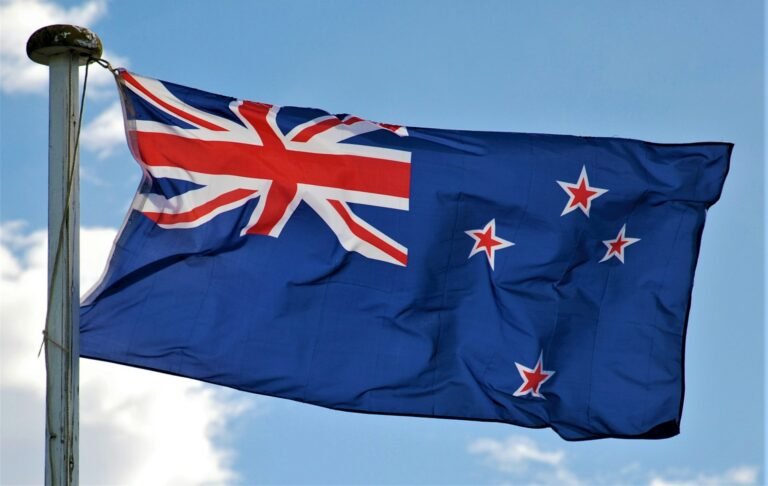List of Top 5 Countries in Africa with the Weakest Passports (2025 Rankings)

Have you ever wondered what it feels like to be restricted in your global movements? While many of us take for granted the ability to hop on a plane and travel to dozens of countries without much paperwork, citizens of certain African nations face significant hurdles when planning international trips. In this article, I’ll dive into the fascinating world of passport rankings and reveal which African countries currently have the most limited travel documents.
The Reality of Limited Mobility
As someone who’s passionate about global travel, I’ve always been intrigued by how passport strength can dramatically impact a person’s ability to explore the world. The reality is stark: while some passports open doors to 180+ countries without prior visas, others barely unlock 40 destinations.
For citizens holding the weakest passports in Africa, international travel often involves lengthy visa applications, high fees, and frustrating rejection rates. Let’s explore which African nations face the greatest challenges when it comes to global mobility in 2025.
How Are Passport Rankings Determined?
Before diving into our list, it’s important to understand how these rankings work. The strength of a passport isn’t arbitrary—it’s calculated based on concrete data.
The prestigious Henley Passport Index evaluates each country’s travel document based on:
- Number of destinations accessible visa-free
- Countries offering visa-on-arrival
- Electronic travel authorization options
- Overall diplomatic relations
The fewer countries you can access without jumping through bureaucratic hoops, the weaker your passport ranks globally. Political stability, economic strength, and international relations all play crucial roles in determining these rankings.
The Top 5 Countries in Africa with the Weakest Passports
Without further ado, let’s examine the five African nations currently holding the weakest passports in 2025:
1. Somalia
Somalia currently holds the unfortunate distinction of having Africa’s weakest passport. Citizens of Somalia can access only 35 countries without obtaining a visa in advance.
The country’s decades-long civil conflict, security concerns, and limited diplomatic relations have severely restricted its passport’s power. Somali travelers often face intense scrutiny at borders and challenging visa application processes.
Travel options: Despite these limitations, Somali passport holders can still visit countries like Malaysia, Kenya, and Ethiopia with relatively simpler visa processes.
2. Libya
Once boasting a moderately strong passport, Libya has seen its travel document’s power decline significantly following years of civil unrest since 2011. Libyan citizens now have visa-free or visa-on-arrival access to just 39 countries.
The ongoing political instability and security concerns have made many nations wary of offering easy entry to Libyan travelers.
Travel options: Libyan citizens can still access several Middle Eastern and African countries with minimal visa requirements.
3. Eritrea
With access to only 41 countries without prior visa arrangements, Eritrea ranks third on our list. The country’s isolated political stance, limited diplomatic relationships, and human rights concerns contribute to its passport’s restricted global mobility.
Eritrean citizens often face additional challenges including lengthy security checks when applying for visas to Western nations.
Travel options: Regional travel within parts of East Africa remains more accessible for Eritrean passport holders.
4. Sudan
Sudan’s passport allows entry to 43 countries without advance visas. The country’s complex political situation, economic challenges, and historical conflicts have impacted its diplomatic relations globally.
Sudanese travelers frequently encounter high visa rejection rates and detailed application requirements for many destinations.
Travel options: Several neighboring African nations and select Middle Eastern countries offer more straightforward entry processes for Sudanese citizens.
5. South Sudan
As the world’s newest nation (established in 2011), South Sudan is still developing its international relations. Its passport currently provides visa-free or visa-on-arrival access to 44 countries.
Ongoing internal conflicts and humanitarian challenges have limited the country’s ability to secure favorable visa agreements with many nations.
Travel options: South Sudanese citizens have better access to neighboring East African countries.
Why Are Some African Passports Weaker Than Others?
The strength of a passport isn’t random—it directly reflects a country’s standing in the international community. Several factors contribute to these African nations having such limited travel documents:
Political Instability
Countries experiencing civil unrest, coups, or prolonged conflicts typically struggle to establish strong diplomatic relations. This instability directly impacts passport strength as other nations impose stricter entry requirements on their citizens.
Economic Challenges
Nations with stronger economies generally secure better visa agreements. Wealthier countries can negotiate more favorable terms for their citizens, while economically challenged nations have less leverage in diplomatic discussions.
Limited Diplomatic Presence
Several countries on our list maintain fewer embassies abroad than their more influential counterparts. This limited diplomatic footprint makes it harder to negotiate favorable visa policies.
Security Concerns
Real or perceived security issues—including terrorism threats or civil unrest—prompt many countries to implement stringent visa requirements for nationals from these regions.
Challenges Faced by Holders of Weak Passports
If you’re fortunate enough to hold a powerful passport, it’s hard to imagine the hurdles faced by citizens with limited travel documents. Here are some common challenges:
Lengthy Visa Processes
While some travelers can book last-minute trips, holders of weak passports must plan months in advance to navigate complex visa applications.
Financial Burden
The cost of visas, required documentation, and sometimes mandatory travel insurance creates a significant financial barrier.
High Rejection Rates
Even after paying non-refundable visa fees, travelers with weak passports face higher chances of rejection, often without detailed explanation.
Limited Spontaneity
The freedom to decide on a Friday to spend the weekend in a neighboring country is simply not available to many African passport holders.
Are There Any Benefits to Holding a Weak Passport?
While the disadvantages are obvious, I’ve noticed some interesting perspectives on potential “benefits” of weaker passports:
Lower International Scrutiny
Citizens with powerful passports sometimes face assumptions they might be potential immigrants, while travelers with weaker documents may experience less of this particular bias (though they face other challenges).
Deeper Cultural Immersion
The difficulty of frequent international travel sometimes results in longer stays and more meaningful cultural engagement when travel does occur.
Creative Problem-Solving Skills
Navigating complex visa systems develops remarkable resourcefulness and patience among frequent travelers with weaker passports.
Can Citizens Improve Their Travel Freedom?
For those holding passports with limited access, several options exist to enhance global mobility:
Dual Citizenship
Obtaining citizenship in a country with a stronger passport can dramatically improve travel options. Many nations in the Caribbean and Europe offer citizenship-by-investment programs, though these typically require significant financial resources.
Residence Permits
Long-term residence permits in countries with stronger diplomatic relations can facilitate easier travel within certain regions.
Regional Economic Communities
Organizations like ECOWAS in West Africa have implemented protocols allowing citizens to travel freely within member states, regardless of their passport’s global ranking.
Which Regions in Africa Have the Weakest Passports?
Looking at regional patterns, two areas stand out for having particularly restricted travel documents:
The Horn of Africa
Somalia, Eritrea, and neighboring countries face significant travel restrictions due to regional conflicts and security concerns.
North Africa
Libya and Sudan represent North African nations whose passports have weakened considerably following political upheavals.
Travel Options for Holders of Weak African Passports
Despite limitations, holders of restricted passports still have valuable travel opportunities. Here are some destinations more accessible to citizens of countries with weaker passports:
Regional African Destinations
Several African nations offer visa-free or visa-on-arrival options to fellow African travelers, regardless of their passport’s global ranking:
- Kenya: Famous for wildlife safaris with e-visa options
- Rwanda: Known for gorilla trekking with straightforward e-visa process
- Tanzania: Home to Mount Kilimanjaro and Zanzibar
- Ethiopia: Rich in history and culture
Asian Options
Select Asian countries offer relatively accessible visa processes:
- Malaysia: Offers visa-on-arrival to many African travelers
- Indonesia: Popular for tourism with straightforward visa processes
Middle Eastern Destinations
Several Middle Eastern nations provide easier access:
- Jordan: Historic sites including Petra
- Lebanon: Vibrant culture and cuisine
Can Weak Passports Improve Over Time?
The good news is that passport strength isn’t static. Countries can improve their travel documents’ power through:
Diplomatic Efforts
Expanding diplomatic relations and negotiating better visa agreements can steadily enhance passport strength.
Political Stabilization
As countries resolve internal conflicts and establish stronger governance, other nations typically become more willing to ease travel restrictions.
Economic Development
Improving economic indicators often correlates with stronger passport rankings as countries gain trading partners and diplomatic leverage.
Conclusion: Looking Beyond the Rankings
While passport rankings matter significantly for international mobility, they don’t define a nation’s worth or its citizens’ potential. Countries with weaker passports often boast incredible cultural heritage, natural beauty, and hospitable populations that make them remarkable destinations in their own right.
For citizens of these nations, I hope that improved international relations will gradually enhance travel freedom. In the meantime, focusing on accessible destinations and making the most of regional travel opportunities can still provide enriching experiences.
If you’re fortunate enough to hold a powerful passport, consider the privilege it represents—the ability to explore our world with minimal restrictions is truly a luxury many can only dream of.
What’s your experience with international travel? Have you faced visa challenges or enjoyed the privilege of hassle-free global movement? Share your thoughts in the comments below!






Your point of view caught my eye and was very interesting. Thanks. I have a question for you.